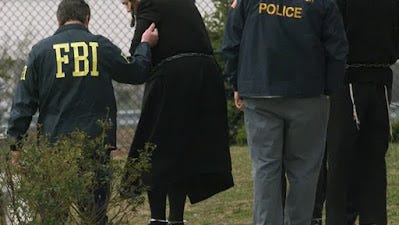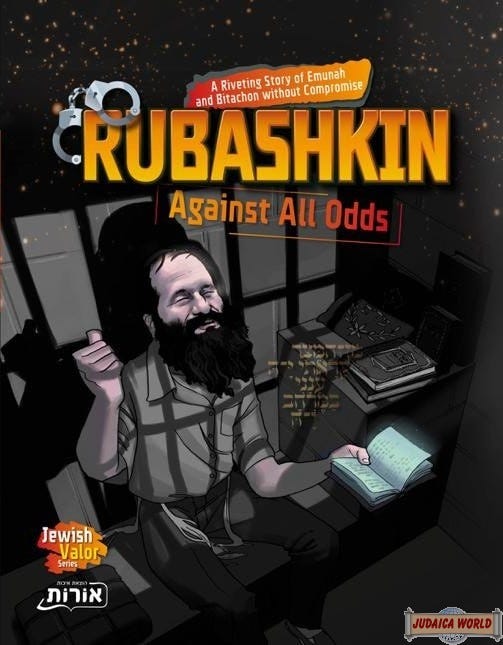How To Be A Frum Criminal

In March 2001, FBI agents raided Kiryas Joel, rounding up 14 suspects on suspicion of a string of financial crimes. Members of the group had falsified social security numbers and used the details to fraudulently obtain tax refunds, life insurance payments, and bank loans. Chief among them was Mordechai Samet, who was convicted on 33 counts of racketeering, money laundering, and fraud that netted about $5.5 million dollars. He was finally released a few weeks ago, after spending twenty years in prison.

Mishpacha magazine just published a feature story on "Reb" Mordechai Samet. When I started reading it, I was initially sickened. The article portrays him as an inspirational man on a mission to teach powerful messages about emunah and bitachon. I began to feel a strong sense of deja vu. It was reminiscent of how the yeshivish community, with few protests, lauded Shalom Rubashkin, the "Baal HaNes," as a heroic martyr, and a baal bitachon par excellence. Yet, to quote Rav Hershel Shechter's comments on Rubashkin, "It's scandalous - the man is a criminal... [but] they're turning him into the next Lubavitcher rebbe!" Rubashkin never speaks about having done anything wrong or about the need to be law-abiding - and in fact, claims to have been the victim of libel. His message is only about his heroic ability to trust in Hashem to help him with his plight - never about his mistakes and wrongdoings that got him there in the first place.
But I was pleasantly surprised to see that the article about Samet reflects a very different approach, in two highly significant ways.
First is that, unlike with Rubashkin, Samet is not only out to teach people about bitachon, but also to urge them to stay away from white-collar crime. Although not adequately stressing the immorality and dishonesty of it, he does stress the foolishness of attempting it, and the chillul Hashem that it causes.
Second is that, at the very end of the article, it becomes clear that Samet is not giving the distorted bitachon message of Rubashkin. As I wrote last year, emunah and bitachon means that Hashem is in charge of our livelihoods; and the practical ramification of such a belief is that there is nothing to be gained by engaging in dishonest activity. The only speech about emunah and bitachon that Shalom Mordechai Rubashkin should be giving is about how he didn't have it, and suffered as a result. Fortunately, Samet makes precisely this point:
In retrospect, Samet admits that if he’d had the wellsprings of bitachon and emunah that he developed and built up during his long years in prison, he would never have gotten into the whole dangerous and dubious enterprise that entangled him so badly.
“Anyone who has strong emunah knows that HaKadosh Baruch Hu provides parnassah to all — from the tiniest creations to the largest ones — without a person needing to employ questionable methods, and especially when those actions are against the law,” Samet says today. “No tricks. And it’s not only because I sat in prison for nearly two decades, but because HaKadosh Baruch Hu says not to do these things. And our job is to make a kiddush Hashem in This World and not, chalilah, the opposite.
“Ultimately, we don’t gain anything and we pay a heavy price. I suffered so much, I caused so much heartache and pain to myself and others. I ask my children forgiveness because they had to suffer so much because of my lack of caution. I ask mechilah from my wife, a tzadeikes, who waited for me all these years. Today, I hope and pray that my sins have been atoned for, and that, as Hashem promises, my transgressions have turned to merits. But please, no one should take the path I did to get there.”
What a refreshing different message to hear!
There's one more very significant point in the Mishpacha article, though I fear not enough people will notice the significance of it. It explains that Samet was not a shrewd con-man out to make a killing, but rather someone simply trying to make ends meet:
“I never aspired to be rich,” he said in his prison interview. “All I wanted to do was scrape by, pay tuition, mortgage, kehillah dues, and make bar mitzvahs and weddings without needing to accept charity.
And there we have a perfect illustration of the truth of Chazal's words, and the terrible failure of the charedi community for determinedly ignoring them:
"Whoever does not teach his son a trade... it is as though he has taught him to steal." (Kiddushin 29a)
(If you'd like to subscribe to this blog via email, use the form on the right of the page, or send me an email and I will add you.)


